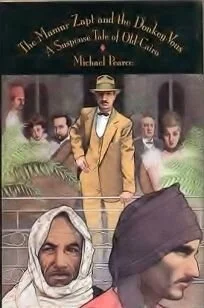Police Detective, from Algiers- Arresting Pépé in a place like the Casbah isn’t child’s play. It takes time. Inspector Janvier, from Paris- Time! The Casbah, I’ll go up there tomorrow, to see how the land lies. Detective- How the land lies?…Funny! The Casbah is like a labyrinth. I’ll show you. (Camera pan over a wall map of the Casbah, followed by a newsreel montage of shots taken from rooftops, terraces, darkened doorways and stepped streets). A teeming anthill…stairways like ladders…jumble of mazes…putrid chasms and slimy porticos…overcrowded cafés…a mystery to us…There is not one Casbah, but hundreds. Thousands!
-Pépé le Moko (1937)
Did the Casbah scare me into staying in a hotel one mile away? How unexpected then, having watched Pontecorvo’s The Battle of Algiers and seen where the French killed Ali la Pointe, thirteen year old Petit Omar and eighteen others in a house demolition, and having met Djamilah Bouhired who left a bomb (which never detonated) in the Air France office and seen FLN mastermind Saadi Yacef’s hiding place in the Bouhired family home, that I should return to the Hotel Suisse and learn that the Boston Marathon finish line had just been blown up.




